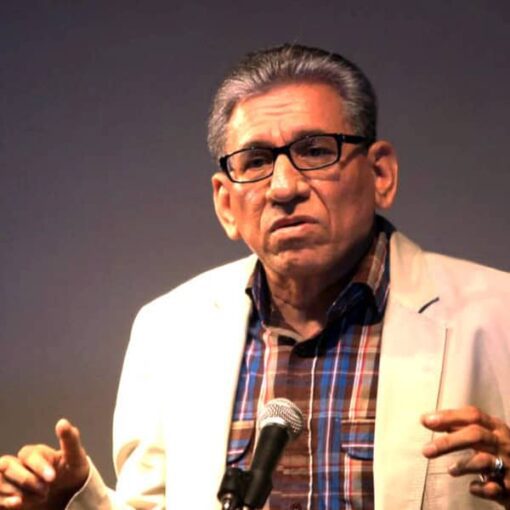The swearing-in ceremony of Guatemala’s president-elect Bernardo Arevalo was delayed for hours Sunday as Congress, controlled by his opponents, was locked in debate over the admission of his lawmakers.
Arevalo’s inauguration ceremony had been due to begin at 3:00 pm local time (2100 GMT) following months of judicial machinations to block him from office after his vow to clamp down on deep-rooted corruption.
However, the right-wing dominated Congress was unable to agree on whether lawmakers with Arevalo’s Semilla (Seed) movement should be installed as regular deputies or as independents, due to the suspension of his party.
Outside the legislature, hundreds of Arevalo supporters clashed with police as they protested the delay, with one holding up a sign reading “Get out, coup-plotting deputies!”
“The lawmakers have the responsibility to respect the will of the people expressed at the polls. They are trying to violate democracy with illegalities, trifles and abuses of power,” Arevalo wrote on X.
A statement signed by the European Union, Organization of American States and other Latin American governments urged Guatemala’s Congress to “fulfill its constitutional mandate to hand over power as required by the Constitution.”
Samantha Power, leading the United States delegation to the inauguration, wrote on social media: “Respect the will of the people. The world is watching.”
Meanwhile EU foreign policy chief Josep Borrell said he would propose sanctions “against members of Congress that prevent the transfer of power.”
Slow-motion coup
Arevalo has faced a constant barrage of attempts to impede him from taking office — at the hands of graft-accused prosecutors closely aligned with the country’s political and economic ruling class. He has repeatedly denounced a “slow-motion coup d’etat.”
The 65-year-old lawmaker, ex-diplomat and sociologist pulled off a major upset when he swept from obscurity to win elections last August, firing up voters weary of graft in one of Latin America’s poorest nations. The inauguration is being attended by the leaders of Chile and Colombia, and Spanish King Felipe VI.
In the capital Guatemala City, Indigenous Mayans lit incense and danced along to the rhythm of drums, celebrating the pending change in government.
“We have had mediocre, corrupt, scoundrel governments that do not have the slightest love for their country, and I hope that this government does not fail the people,” said Indigenous leader Alida Vicente, 43. There is a lot of enthusiasm, there is a lot of hope from the population.” Arevalo is due to replace Alejandro Giammattei.
Under Giammattei, several prosecutors fighting graft have been arrested or forced into exile. Rights groups also accused him of cracking down on critical journalists.
He was also accused of propping up attorney general Consuelo Porras, heading the campaign against the newcomer alongside senior prosecutor Rafael Curruchiche and Judge Fredy Orellana. All three are listed as corrupt and undemocratic by the US Justice Department.
The prosecutors have tried to overturn the election results, strip Arevalo of immunity from prosecution, and his Semilla party has had its registration suspended on fraud allegations widely seen as trumped up.
Rebuilding democracy
Guatemala is ranked 30th out of 180 countries by Transparency International, which lists nations from most to least corrupt. It is also one of Latin America’s most unequal countries, a reality that has, along with high rates of violent crime, compelled hundreds of thousands to risk the perilous migrant journey to the United States in hopes of a better life.
Arevalo is the son of reformist Juan Jose Arevalo, who in 1945 became Guatemala’s first democratically elected president after decades of dictatorship. The chess-playing, jazz-loving polyglot is facing a tricky task ruling Guatemala.
To start with, he inherits an attorney general who “attacked and criminalized” him and “threatened democracy to a degree we had not thought possible,” said Edie Cux of Citizen Action, a local version of Transparency International.
Arevalo himself has acknowledged there would be “difficulties, since these political-criminal elites, at least for a time, will continue to be entrenched in some branches of the state.” The new president would also have to deal with a deeply fragmented Congress.
“He will have to address their concerns. But you cannot expect him to come with a magic wand. His most important and urgent task is rebuilding democracy,” said the former human rights commissioner Jordan Rodas.
Source link
AFP



